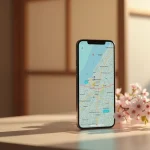Immediate and Common Hidden Cruise Costs
Hidden cruise costs frequently catch travelers off guard, creating unexpected cruise expenses that affect the overall budget. One of the most common hidden cruise costs is gratuities and service charges. These fees, often excluded from the base fare, are added per passenger, per day, covering crew tipping and service staff appreciation. While some cruises allow prepayment, others add these charges automatically to your onboard account, increasing final expenses.
Another set of hidden cruise costs involves port fees and taxes. Though the advertised price might seem appealing, these mandatory fees are typically added later, either during booking or at checkout. They can include dockage fees, customs taxes, and government levies, significantly inflating the total cost.
Also to read : What Are the Eco-Friendly Options for Cruises in the UK?
Travelers should be mindful of required travel insurance and health mandates that may not appear in the initial fare breakdown. Cruise lines often require proof of insurance covering medical emergencies or trip cancellations, adding to the unexpected cruise expenses if not factored in beforehand.
Understanding these cruise fare exclusions helps you plan more accurately, avoiding surprises that sour your voyage. Keeping track of these costs ensures a smoother, more transparent booking experience.
Also read : What Makes UK Cruises an Unforgettable Experience for Tourists?
Onboard Expenditures Beyond the Cruise Fare
Understanding onboard spending is essential for successful cruise budget planning. While the UK cruise extras often entice travelers with appealing options, these can significantly increase your total expenses.
Take drinks packages, for example. Opting for a package can provide cost savings if you enjoy multiple beverages daily. However, purchasing individual drinks might be more economical for casual drinkers. Knowing the difference helps you manage your budget effectively and avoid surprises.
Specialty dining experiences add another layer of onboard spending. Many ships offer à la carte restaurants priced separately from the main buffet or included meal options. These unique culinary moments come with additional charges but can enhance your voyage. Deciding how often you indulge depends on your preferences and wallet.
Don’t forget wellness activities, like spa treatments and fitness classes. These are popular on UK cruises but often require extra fees. Whether a rejuvenating massage or a yoga session, these experiences can boost your trip’s value if you plan accordingly.
Assessing these UK cruise extras before your cruise helps you tailor your budget, ensuring a balance between enjoyment and financial control.
Off-Ship and Excursion-Related Expenses
When planning shore excursions from a UK port, understanding potential extra trip costs is essential. Cruise operators often offer guided shore excursions that provide convenience and structured experiences. These packages typically include transportation, entry fees, and a guide, but they can be pricier than exploring independently.
Choosing third-party tours or independent exploration requires budgeting for separate expenses such as local transport, attraction entrance fees, and meals off-ship. For example, using taxis, buses, or renting bikes can add up, especially if the itinerary involves multiple stops or long distances.
Unexpected expenses also arise when you forget essential items like sunscreen or toiletries. Since prices at port shops tend to be higher, purchasing these necessities offshore can significantly increase your budget. Packing thoughtfully can prevent this, but it’s wise to allocate funds for such incidentals.
In summary, whether opting for guided tours or independent exploration, being aware of and planning for all shore excursion-related expenses can help avoid unwelcome surprises during your UK port activities.
Connectivity and Communication Charges
Cruise WiFi costs can vary widely, often surprising travelers with hidden connectivity fees. Internet and WiFi packages on most cruise ships differ in speed and data limits, typically priced per day or per cruise duration. Many packages advertise unlimited access but come with speed caps or restrictions on certain apps, impacting onboard communication quality.
Roaming and international phone call charges at sea tend to be significantly higher than on land. Mobile networks onboard usually operate via satellite, leading to elevated roaming fees that can quickly accumulate. Passengers may find that using their usual mobile plans results in unexpected costs, which are often not clearly communicated beforehand.
To stay connected affordably, alternatives include purchasing WiFi packages in advance or using dedicated satellite communication devices. Messaging apps that work offline or with minimal data, such as WhatsApp or Signal, can help reduce usage costs. Some cruisers opt to download entertainment and communication content before boarding, minimizing the need for constant online access.
Understanding cruise WiFi costs and hidden connectivity fees is essential for planning communication aboard. This knowledge helps travelers avoid surprise expenses and choose the best options for their needs.
Getting to and From the Cruise Port
Arriving at the cruise port smoothly is essential to start or end your voyage stress-free. When planning cruise port transfers, consider various transportation options within UK cruise travel. Parking at ports often incurs fees, sometimes higher during peak seasons. If you choose to drive, check parking rates in advance to avoid unexpected transportation costs. Alternatively, trains and buses offer convenient, wallet-friendly routes to many UK cruise ports, with fares varying by time and service provider.
For those flying in, airport transfers can include shared shuttles, private taxis, or pre-booked transfers. Booking ahead often saves money and guarantees timely arrival, crucial for cruise check-in deadlines.
Some travelers prefer an overnight stay near the port, either before departure or after disembarking. This strategy eases anxiety around timing and gives flexibility in case of delays. Nearby hotels may offer special cruise packages or shuttle services.
Lastly, consider luggage handling tips. Porters can assist with heavy bags, but tips vary depending on service. Preparing your own luggage tags and organizing your bags efficiently helps streamline both arrival and departure at the cruise port.
Real Cost Examples and Smart Saving Strategies
Understanding UK cruise cost examples is crucial for effective budgeting. For instance, while the base fare may start around £300 for a week-long cruise, additional expenses like drinks, gratuities, and shore excursions can easily add £100 to £200 or more per person. These hidden costs often catch travellers off guard.
To manage your budget, following simple cruise budgeting tips can make a significant difference. Booking early often secures lower fares and allows access to promotional packages that include drinks or excursions. Alternatively, travelling during off-peak seasons such as late autumn can reduce base prices by 20-30%.
When reviewing contracts or fare details, look carefully for wording about mandatory service charges or optional extras. These frequently appear buried in small print and explain why a seemingly affordable cruise trip becomes pricier.
Practical travel savings advice includes choosing all-inclusive packages, which bundle many extras, minimising unexpected costs. Additionally, pre-purchasing excursion tours independently often costs less than onboard alternatives.
In sum, knowing these UK cruise cost examples and applying smart booking strategies can help cruisers enjoy holidays without unwelcome financial surprises.




